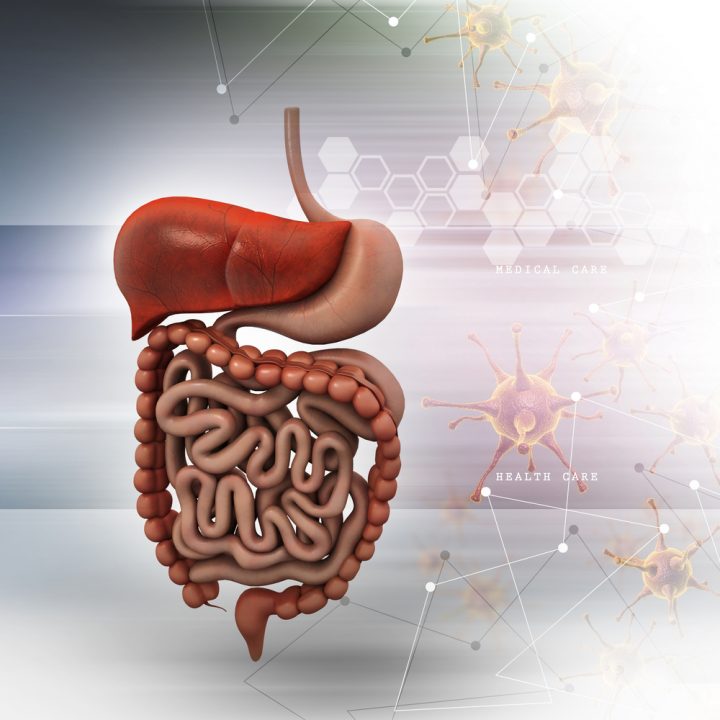Bacteria in Gut Can Promote Parkinson’s by Altering Brain’s Immune Reactions, Study Says

Bacterial infections in the intestines may trigger Parkinson’s progression by altering the immune system and damaging dopaminergic neurons, according to an early study supporting a “gut-brain” connection in this disease.
The findings, “Intestinal infection triggers Parkinson’s disease-like symptoms in Pink1−/− mice,” were published as a letter in Nature. A letter is a short report of original research that is of interest to investigators in other fields.
Strong evidence suggests mutations in the PINK1 gene, which codes for an enzyme that protects mitochondria — the cell’s energy-producing powerhouse — during periods of cellular stress are linked to early onset hereditary Parkinson’s. When mutated, tangles of the PINK1 protein build inside mitochondria in brain cells and damage them.
“Although the mechanisms that trigger the loss of dopaminergic neurons are unclear, mitochondrial dysfunction and inflammation are thought to have key roles,” the researchers noted.
PINK1 is thought to participate in the clearance of damaged mitochondria, but studies do not consistently support the protein’s exact role in the cellular cleaning process.
Although mutations in PINK1 in Parkinson’s patients are known to promote disease progression, mice without the PINK1 gene are generally healthy. In fact, the animals display little, if any, Parkinson’s-related motor symptoms, suggesting the neurodegenerative disorder may be triggered by factors other than the loss of this protein’s function.
Based on their previous work, scientists at the Université de Montréal hypothesized that infection with a specific type of bacteria — called Gram-negative bacteria — could activate the immune system and “order it” to produce mitochondria-specific autoreactive CD8+ T-cells. Often called cytotoxic T-lymphocytes, CD8+ T-cells are very important for immune defense against intracellular pathogens (infectious agents).
Scientists first tested their theory in a lab dish. They infected mouse cells with several bacteria, including Gram-positive and Gram-negative ones, and observed that only the Gram-negative bacteria induced the activation of an immune response, with the highest levels obtained when the intestinal bacteria Escherichia coli (EPEC) and Novosphingobium aromaticivorans were used.
To determine whether Citrobacter — a Gram-negative mouse intestinal pathogen that is used as a model of human EPEC infection — triggered an immune activation, researchers then infected wild-type (normal) mice and animals engineered to lack the PINK1 protein. The bacteria were administered directly into the animals’ stomach by a tube (oral gavage).
In mice lacking the PINK1 protein, intestinal infection with this Gram-negative bacteria was found to activate immune mechanisms necessary for CD8+ T-cells to travel to peripheral tissues and the brain, compromising cell function.
Neurons within the animals’ striatum — a brain center crucial for motor control that’s severely damaged in Parkinson’s — were significantly degenerated, and as such, these mice exhibited Parkinson’s-like symptoms, the research team reported. The animals’ motor difficulties, which included limited back leg activity and slower movement four months post-infection, were treated with levodopa.
Microorganisms in the gut are known to communicate with the central nervous system through nervous, endocrine, and immune signaling pathways. Notably, studies suggest that harmful proteins related to Parkinson’s may start in the gut and later spread to the brain.
“These data support the idea that PINK1 is a repressor of the immune system, and provide a pathophysiological model in which intestinal infection acts as a triggering event in Parkinson’s disease, which highlights the relevance of the gut–brain axis in the disease,” the researchers concluded.






